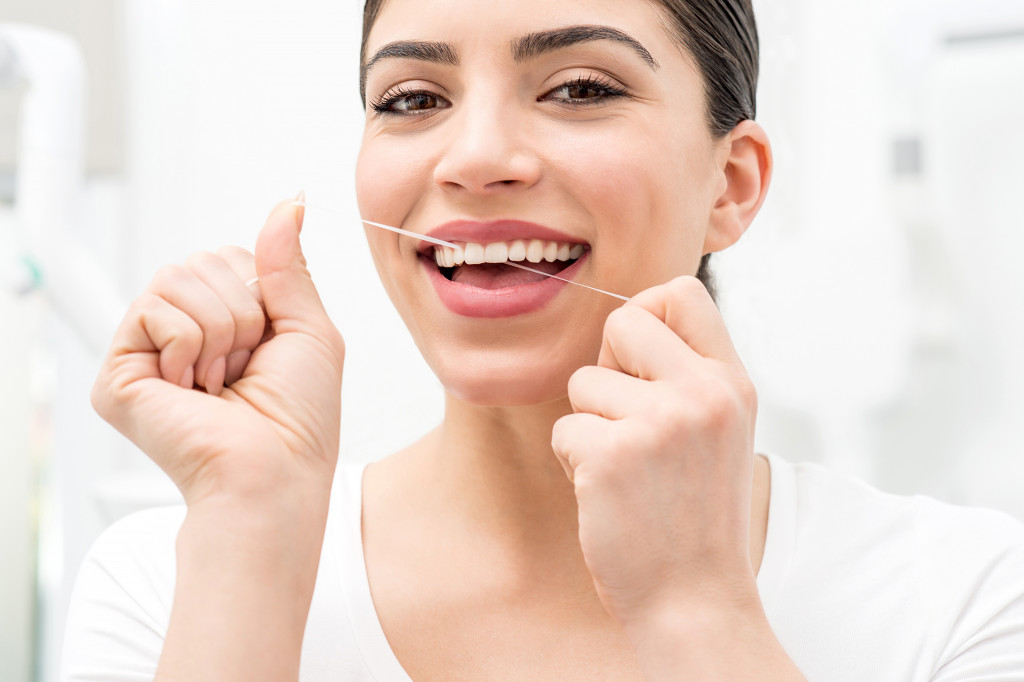The most common chronic disease among American children and adults is tooth decay. Due to this, the Healthy People 2030 program of the government aims to reduce tooth decay and other oral health conditions. The program also aims to provide easy access to oral healthcare services.
Keeping your teeth clean and healthy is essential to your physical and mental well-being. Good oral health means more than just having a beautiful smile; it also affects your overall health and quality of life. To ensure that you have the best oral health possible, you should take some basic steps. Let’s take a look at what these steps are.
Brush and Floss Regularly
The most basic step in taking care of your oral health is brushing and flossing regularly. You should brush twice a day for two minutes each time, using toothpaste with fluoride to help protect against cavities. It would help if you also flossed once a day to remove any food particles between the teeth that brushing can miss. This can help prevent plaque buildup and gum disease.
When choosing a toothbrush, you should look for one with soft bristles so it won’t irritate your gums. Also, make sure to replace your toothbrush every three months or so to ensure that the bristles are still effective. As far as flossing, try using a waxed variety, as this will help make cleaning between the teeth easier and more comfortable.
It’s also essential to use the right technique when brushing and flossing. You should brush in circular motions using short strokes, paying particular attention to the gum line and areas between teeth where plaque is likely to accumulate. When it comes to flossing, make sure you gently slide the floss up and down each side of the tooth and under the gum line.
Visit a Dental Clinic Regularly
You should visit a reputable dentist to help improve your oral health. The dental professional can provide a thorough examination and cleaning, as well as check for any signs of decay or other issues. If a problem is identified early on, it can be easier and less costly to treat.
Many different dental services are available, so it is important to ask about which ones you need and what your insurance will cover before scheduling an appointment.
Additionally, regular dental visits can help you maintain oral health and prevent costly procedures down the road. Finally, staying on top of regular teeth cleanings can improve the overall appearance of your smile!

Eat a Balanced Diet
Eating a balanced diet is essential for maintaining good oral health. Eating foods high in sugar can lead to cavities over time, so limit sugary snacks and drinks as much as possible. Plenty of fresh fruits and vegetables rich in vitamins will also help keep your teeth strong and healthy. You should eat nuts, dairy products, leafy green vegetables, lean proteins like fish and chicken, and whole grains.
Avoid foods high in sugar, and processed carbohydrates, such as white bread, pastry, and sugary snacks, as these can increase the risk of cavities. It’s also important to stay hydrated by drinking plenty of water throughout the day to help flush away any food particles and keep your teeth clean.
Avoid Tobacco Products
Tobacco products have long been known to be detrimental to oral health, and people must take steps to avoid them. Smoking and chewing tobacco can cause a variety of adverse changes in the mouth, including tooth discoloration, bad breath, gum disease, and an increased risk of developing oral cancer. All these issues can affect the health of your teeth, gums, and other parts of the mouth.
It is essential to understand that there are no safe levels of tobacco use when it comes to oral health. Even light smokers can damage their teeth and gums if they don’t care for their mouths. Quitting smoking or using any other type of tobacco product is the best way to protect your oral health. Brushing, flossing, and visiting a dental professional regularly can help you keep your mouth healthy. They can even help after you have already damaged it with tobacco use.
Plenty of resources available can provide you with support and guidance if you’re struggling to quit smoking or using other tobacco products. A dental professional can refer you to a smoking cessation program, or you can research options online. Quitting smoking is one of the best things you can do for oral health, so take the time to find the right resources and make it happen.
Good oral health is essential for overall wellness, both physically and mentally. By following simple steps, you can ensure that you have the best oral hygiene possible! So what are you waiting for? Start taking care of those pearly whites today.


